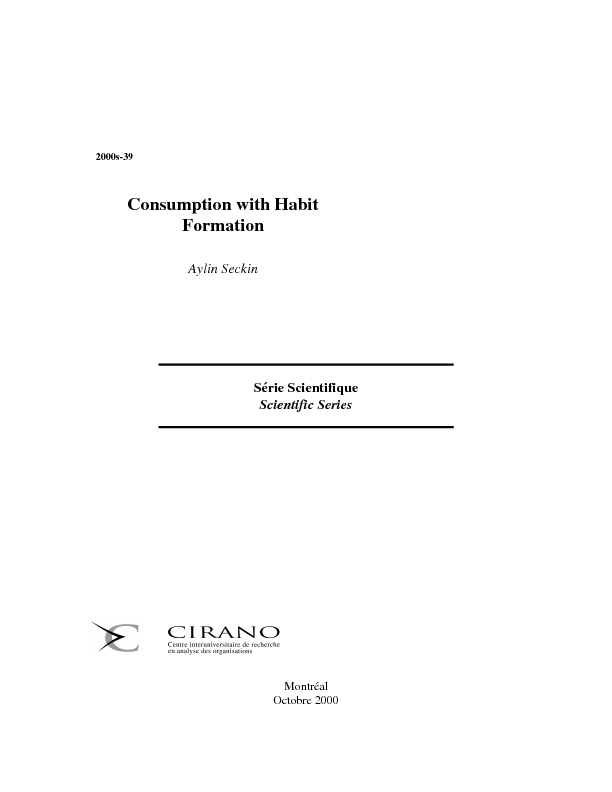Consumption with Habit Formation
In a representative-agent model of intertemporal consumption-saving with stochastic income and habit formation, we have shown that precautionary savings observed in the data cannot be attributed only to income uncertainty, but also to the time-non-separability of preferences. We have found that, with habit-forming preferences, consumption depends not only on permanent income but also on past consumption and the stronger the habits the lower the effect of income uncertainty on consumption. For a given constant coefficient of risk aversion, habit-forming consumer will have smaller precautionary savings per unit of income risk faced than the one with time-separable preferences. By allowing habit forming preferences in consumption, a closed form solution, explaining excess-sensitivity, excess-smoothness and excess-growth puzzles of consumption, and thus, providing a better framework for empirically testing the behavior of consumption over the business cycle, is found with only i.i.d. income innovations.
[ - ]




